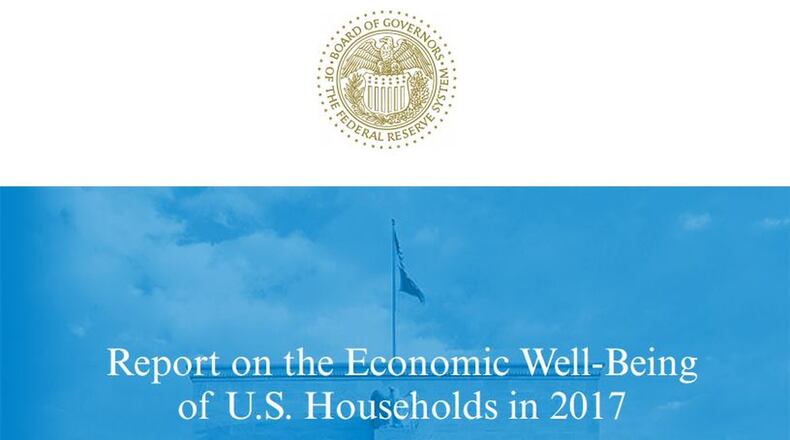It pays, literally, to finish what you start when it comes to education.
The Board of Governors of the Federal Reserve System, who have 1,800 economists, policy experts and others at their disposal to study, monitor and describe U.S. economic health, say that a post-high-school degree — any degree from an associate to a Ph.D. — is the key to boosting earning. And the higher the degree, the higher the paycheck.
The facts are there to be measured, even for those who believe the cost of an education exceeds the long-term payback.
But for some Georgians, the initial cost can be an insurmountable obstacle.
The Board of Governors issued in May its Report on the Economic Well-Being of U.S. Households in 2017. It looked over and summarized the state of everything from American income, employment and credit to how people feel about their financial futures, and the effect of graduating with a degree. It also lays out what happens to those who start a degree but don't finish, often because of the cost.
Those who take on student debt but don't finish put themselves in a financial pinch. That is something The Atlanta Journal-Constitution pointed out in a series of stories last year.
Indebted students have to carry the burden of student loans or other debt taken on while in college. But, they don’t have a degree that pushes up their earnings and helps them pay off that debt. That leaves them worse off than before. One result of that shows up in loan default rates. About one of every three former students in that situation are behind on paying back their student debt, the report says. Compare that to one out of ten being behind on student loan payments among those who finished a bachelor’s degree.
An arresting contrast in the report: Minorities are disproportionately represented in the number of students who start a degree but don’t finish and who fall behind on their loans. There are many reasons people quit. The report notes that real-life stuff gets between people and their goals: Personal and family problems interfere, an immediate need for money pushes back long-term goals, the fear of debt and lack of hope that the degree will pay off in more income discourages others.
So, several groups of people who need education the most to pull themselves up — the poor, who are over-represented among minority groups — have more challenges to finishing a degree than those from already successful families.
If higher education were less expensive for them, think of the results.
The federal report asked those with a degree how they think they are doing in today’s economy.
Ninety percent who finished an advanced degree say they are doing OK. Among bachelor’s degree holders, 82 percent say they are OK. Seventy-two percent of associate degree holders say the same.
That percentage falls to 66 percent among those who have a high school diploma or less.
Then there is this from the federal Bureau of Labor Statistics.
In 2016, those with the highest average unemployment rate (6.5 percent) were those without a high school diploma. Their average wages were $520 a week.
Those who earned a high school diploma were unemployed at 4.6 percent and earned an average of $712 a week.
Workers with some college but no degree suffered 4 percent unemployment and earned an average of $774 weekly.
Associate degree holders had 3.4 percent unemployment and earned $836 a week.
Bachelor’s degree holders were unemployed at 2.5 percent and earned and $1,173 weekly, on average.
The Board of Governors sums it up succinctly: “Economic well being rises with education.”
That’s a no-brainer. But the problem, that some who most need an education face more obstacles to achieve a degree, is unresolved in Georgia, one of two states in the nation until this year that does not have a needs-based scholarship.
Georgia passed a law instituting needs-based scholarships on the last day of the General Assembly. It squeaked by thanks to the political maneuvering of its champion, Sen. Fran Millar, R-Dunwoody, who tacked it onto a House Bill 787, which increased funding for charter schools. But the bill did not include money for the higher education scholarships.
Finding the estimated $26 million to fund them will be up to our legislators when they return in January.
About the Author
Keep Reading
The Latest
Featured



